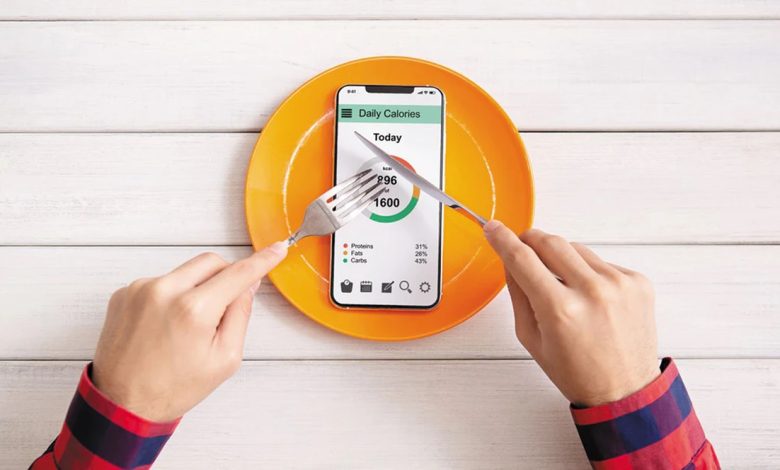Does counting calories help to lose weight?

counting calories help to lose weight: Senior Dietitian Victoria Taylor gives her expert view on this controversial issue.
Calorie counting used to be the most widely used method of ‘dieting’ – but it fell out of favour as we learnt more about nutrition and health, and the importance of a whole-diet approach.
Still, it’s true that in order to lose weight, you need to burn more calories than you take in. With the trend towards diet tracking apps, as well as smartwatches and other wearables that can help you monitor calories in and calories out, calorie counting is back in fashion. So if losing weight is on your mind, might it be time startcalorie counting again?
Stay with this section of Medicinal plants in the health and beauty section of Eternal Pen magazine.
What is a calorie?
counting calories help to lose weight

Calories are the units that energy is measured in, similar to how we would talk about grams of fat or millilitres of water. When we talk about how many calories are in a food or how many calories we are burning during exercise, it means the amount of energy that the food contains or that we are using up.
One calorie is the amount of energy needed to increase the temperature of 1ml of water by 1°C. This is a tiny amount of energy. When we talk about calories, we usually mean kilocalories (kcal), which are 1,000 calories. It’s kilocalories that are shown on food labels and restaurant menus and how our daily energy requirements are measured.
The average recommended daily calorie intake for men is 2,500kcals per day and 2,000kcals for women. However, how many calories we need each day varies depending on a variety of factors including how active you are, your age, and whether your body is fighting an infection or healing a wound. It will also vary from day to day. This means that when you see average calorie requirements, these are only a guideline.
- What does 100 calories look like?
Why count calories?
Calorie counting is mainly used as a way of losing weight. You estimate your energy requirement (either based on the average or with one of the online tools that can help you do this more accurately) and then decide how many calories less than this you will consume. This creates an energy or calorie deficit.
counting calories help to lose weight: Evidence shows that weight loss programmes which create a deficit of around 600kcals (by changing your diet or doing more exercise, or both) can be used as a way of reducing weight. But we also know that the best approach to weight loss is one you can stick to. If you find a deficit of 600kcals per day leaves you very hungry or unable to balance your meals, then it’s fine to have a smaller deficit. You will still lose weight, it might just take longer.
It can be tempting to cut the amount of calories you eat more drastically, but while there can be a role for short-term very low-calorie diets, these should only be tried with medical supervision. They are difficult to stick to long-term, and it can be hard to ensure you get all of the nutrients you need.
- How many calories should you eat a day? Find out more about maintaining a balanced diet.

What’s the problem with calories?
What a focus on calories alone doesn’t do is take into account the overall quality of the diet, what nutrients you are getting, and how full different foods make us feel. The overall balance and variety of your diet is just as important as the number of calories you are eating when it comes to health. The energy you get from 100kcals is the same whether it’s half an avocado or half a bar of chocolate, but the difference is in their nutritional value. The same goes for ‘diet’ products that have been formulated to be low-calorie versions. Some people find these products useful, but you might be better off with a smaller amount of the standard version if that makes you feel more satisfied.
counting calories help to lose weight: You might be surprised to know that food labelling laws allow for the numbers given for nutritional information to vary by up to 20 per cent (a fifth) from the amount stated on the label. A few calories here or there shouldn’t make much difference, but for higher-calorie foods, or foods you eat a lot of, this could affect your weight loss. This doesn’t have to stop you counting calories, but bear in mind that it isn’t as precise as you might think.
- Find out more about food labelling.

Calorie counting and mental health
A focus on calories and calorie counting for weight loss can be difficult and distressing for people who are living with, or are vulnerable to, eating disorders. If this applies to you, or if you’ve tried counting calories and found that this had a negative impact on your mental health, then this approach is not right for you. If you would like help to make changes to your diet, talk to your doctor or dietitian who can help you with more personalised support.
Should I stop counting calories?
If you don’t want to calorie count
Whether or not you calorie count…








